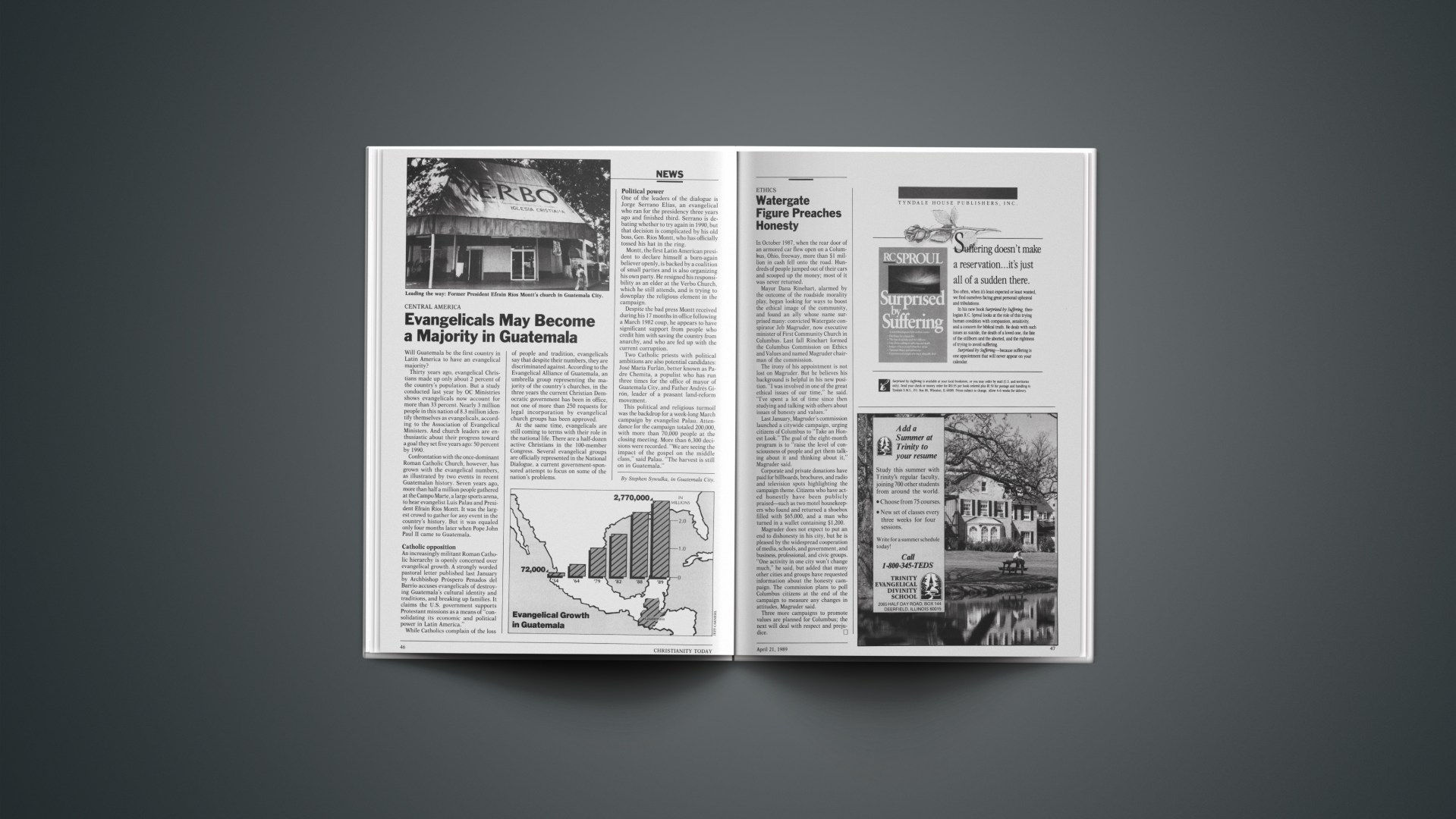Will Guatemala be the first country in Latin America to have an evangelical majority?
Thirty years ago, evangelical Christians made up only about 2 percent of the country’s population. But a study conducted last year by OC Ministries shows evangelicals now account for more than 33 percent. Nearly 3 million people in this nation of 8.3 million identify themselves as evangelicals, according to the Association of Evangelical Ministers. And church leaders are enthusiastic about their progress toward a goal they set five years ago: 50 percent by 1990.
Confrontation with the once-dominant Roman Catholic Church, however, has grown with the evangelical numbers, as illustrated by two events in recent Guatemalan history. Seven years ago, more than half a million people gathered at the Campo Marte, a large sports arena, to hear evangelist Luis Palau and President Efrain Rios Montt It was the largest crowd to gather for any event in the country’s history. But it was equaled only four months later when Pope John Paul II came to Guatemala.
Catholic Opposition
An increasingly militant Roman Catholic hierarchy is openly concerned over evangelical growth. A strongly worded pastoral letter published last January by Archbishop Próspero Penados del Barrio accuses evangelicals of destroying Guatemala’s cultural identity and traditions, and breaking up families. It claims the U.S. government supports Protestant missions as a means of “consolidating its economic and political power in Latin America.”
While Catholics complain of the loss of people and tradition, evangelicals say that despite their numbers, they are discriminated against. According to the Evangelical Alliance of Guatemala, an umbrella group representing the majority of the country’s churches, in the three years the current Christian Democratic government has been in office, not one of more than 250 requests for legal incorporation by evangelical church groups has been approved.
At the same time, evangelicals are still coming to terms with their role in the national life. There are a half-dozen active Christians in the 100-member Congress. Several evangelical groups are officially represented in the National Dialogue, a current government-sponsored attempt to focus on some of the nation’s problems.
Political Power
One of the leaders of the dialogue is Jorge Serrano Elias, an evangelical who ran for the presidency three years ago and finished third. Serrano is debating whether to try again in 1990, but that decision is complicated by his old boss, Gen. Rios Montt, who has officially tossed his hat in the ring.
Montt, the first Latin American president to declare himself a born-again believer openly, is backed by a coalition of small parties and is also organizing his own party. He resigned his responsibility as an elder at the Verbo Church, which he still attends, and is trying to downplay the religious element in the campaign.
Despite the bad press Montt received during his 17 months in office following a March 1982 coup, he appears to have significant support from people who credit him with saving the country from anarchy, and who are fed up with the current corruption.
Two Catholic priests with political ambitions are also potential candidates: José María Furlán, better known as Padre Chemita, a populist who has run three times for the office of mayor of Guatemala City, and Father Andrés Girón, leader of a peasant land-reform movement.
This political and religious turmoil was the backdrop for a week-long March campaign by evangelist Palau. Attendance for the campaign totaled 200,000, with more than 70,000 people at the closing meeting. More than 6,300 decisions were recorded. “We are seeing the impact of the gospel on the middle class,” said Palau. “The harvest is still on in Guatemala.”
By Stephen Sywulka, in Guatemala City.










